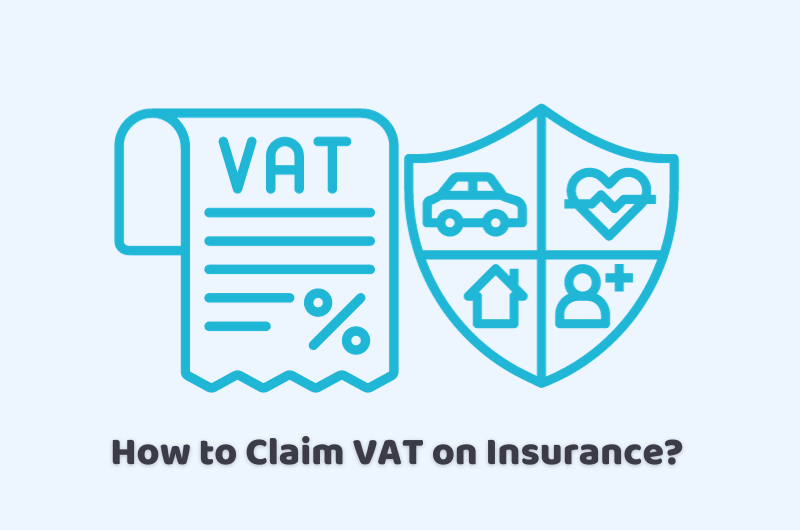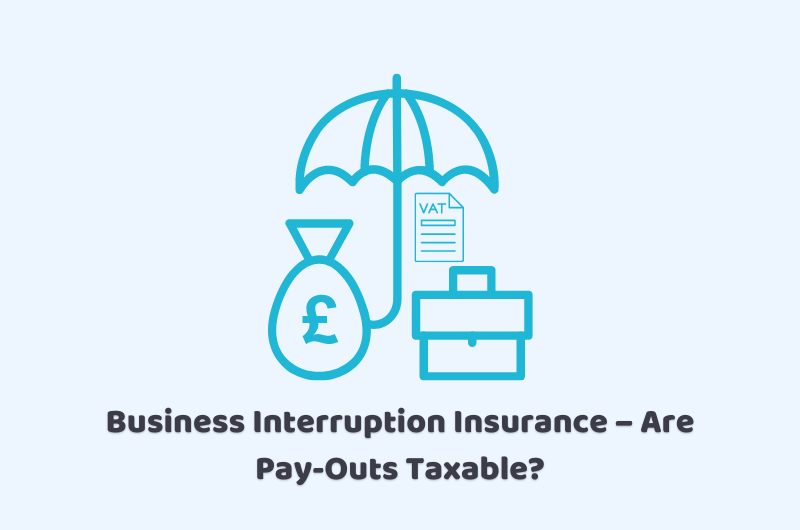
20/12/2023VAT
Let’s dive into the topic of how to claim VAT on insurance. It’s an interesting area that involves understanding the complexities of VAT regulations and how they apply to insurance expenses. VAT, or Value Added Tax, is a consumption tax that is charged on most goods and services in the UK. When it comes to insurance, the VAT treatment can vary depending on the type of insurance and the specific circumstances. Some insurance policies may be subject to VAT, while others may be exempt.
To determine whether VAT can be claimed on insurance premiums, it’s important to consider factors such as the purpose of the insurance, the nature of the business, and whether the business is VAT registered. By understanding these key aspects, we can explore the potential opportunities for VAT recovery and ensure compliance with the relevant regulations. Now, let’s delve deeper into this topic and explore the intricacies of claiming VAT on insurance.
Reach out to our smart and clever-minded guys to get an understanding of claiming VAT on insurance in the UK queries answered quickly. We will help to understand your queries instantly.
What is Value-Added Tax?
VAT registration is required for businesses that have a taxable turnover above a certain threshold, which is currently £85,000. VAT registration is important for a company because it allows them to comply with tax regulations, claim back VAT on eligible purchases, and avoid penalties for non-compliance. If you want to find the VAT number of a company, you can usually find it on their invoices or other official documents. I hope this helps clarify what VAT is and why it’s important in the UK.
How to Claim VAT on Insurance?
If a business is partly exempt in terms of VAT, it means that they engage in both taxable and exempt activities. This can happen when a business offers a combination of goods or services that are subject to VAT and others that are exempt from VAT. When a business is partly exempt, they are required to calculate the amount of VAT they can reclaim based on the proportion of their taxable activities.
This is done through an apportionment method, which determines the amount of VAT that can be recovered. The business must keep detailed records and maintain a clear separation between its taxable and exempt activities.
What if the Business is Partly Exempt?
In the UK, insurance services are generally exempt from VAT. This means that insurance companies do not charge VAT on the premiums they collect from policyholders. However, there are some instances where VAT can be claimed by insurance companies. One such instance is when an insurance company incurs VAT on its purchases, such as office supplies or professional services.
In these cases, the insurance company can claim back the VAT they have paid as input tax. Insurance companies need to keep accurate records of their VAT-eligible expenses and ensure they meet the necessary criteria for claiming VAT. It’s also worth noting that the rules and regulations around VAT in insurance can be complex, so insurance companies should seek professional advice or consult with a tax expert to ensure compliance.
What if Input Tax Recovery is Blocked?
If the input tax recovery is blocked in the context of VAT, it means that a business is unable to claim back the VAT they have paid on certain expenses. There are specific circumstances where input tax recovery may be blocked, such as when expenses are incurred for non-business purposes or when they relate to exempt supplies.
For example, if a business incurs VAT on expenses that are solely for personal use or for activities that are exempt from VAT, it will not be able to recover that VAT as input tax. Keeping accurate records and understanding the rules surrounding input tax recovery can help businesses avoid any issues or penalties related to VAT compliance.
Should We Expect any Help from HMRC?
Yes, HMRC can provide assistance and guidance in matters related to VAT. They have resources available on their website that explain the rules and regulations surrounding VAT and can help businesses understand their obligations and rights when it comes to VAT recovery. HMRC also offers various forms of support, such as helplines and online services, where businesses can seek clarification and ask specific questions about their VAT situation.
Additionally, HMRC may guide specific scenarios or circumstances where input tax recovery may be blocked. It’s important for businesses to proactively engage with HMRC and stay updated on any changes or updates to VAT regulations to ensure compliance and maximize their VAT recovery.
What About the Money Received?
If you’re referring to the money received about VAT, it’s important to understand how it will be treated. When a business collects VAT from its customers, it is required to hold that money in a separate VAT account. This money is not the business’s revenue but rather the VAT that will eventually need to be paid to HMRC. The business is responsible for periodically submitting VAT returns to HMRC, which detail the VAT collected from customers and the VAT paid on business expenses.
The VAT return will determine whether the business owes money to HMRC or is eligible for a VAT refund. If the business owes money, it will need to pay it to HMRC by the deadline specified. If the business is eligible for a refund, HMRC will process the refund accordingly. Businesses need to manage their VAT properly, keeping accurate records of VAT collected and paid, to ensure compliance and avoid any penalties or interest charges.
The Bottom Line
Based on our discussion about how to claim VAT on insurance, the conclusion is that the ability to claim VAT on insurance depends on the specific circumstances and the type of insurance involved. Generally, if the insurance is directly related to the business activities and the business is VAT registered, it may be possible to claim VAT on the insurance premiums. However, there are certain types of insurance, such as life insurance or certain types of health insurance, that are exempt from VAT and therefore VAT recovery would not be applicable.
It’s important to carefully review the terms and conditions of the insurance policy and consult with a tax professional or accountant to determine whether VAT recovery is possible. Additionally, keeping accurate records of insurance expenses and ensuring they are properly allocated in the business accounts will be crucial for VAT compliance.
Our team of professional members loves to hear out your business problems and find out the possible and suitable solutions quickly to the reporting in the UK. Contact us now.
Disclaimer: The information about how to claim VAT on insurance provided in this blog includes text and graphics of general nature. It does not intend to disregard any of the professional advice.

